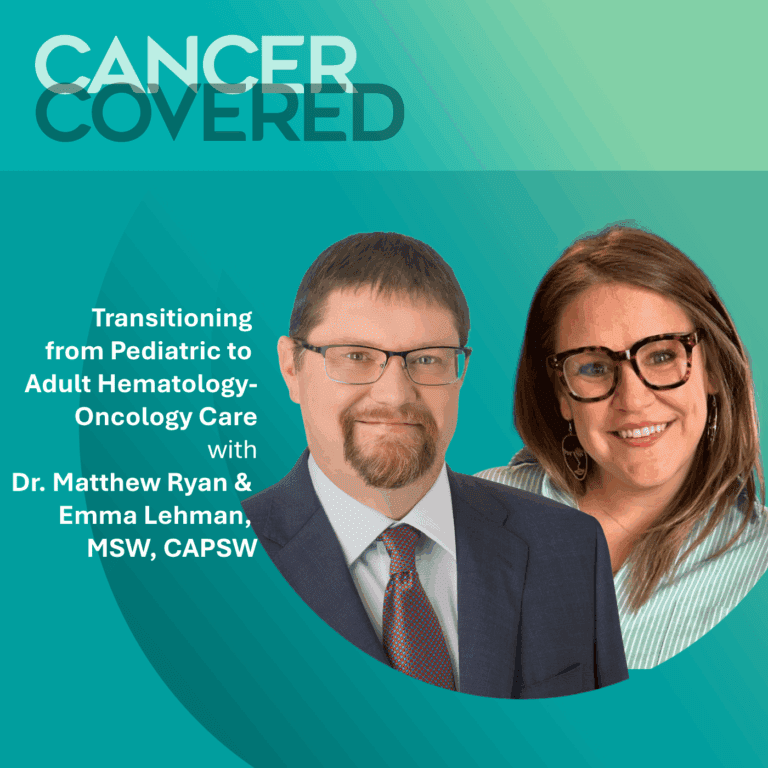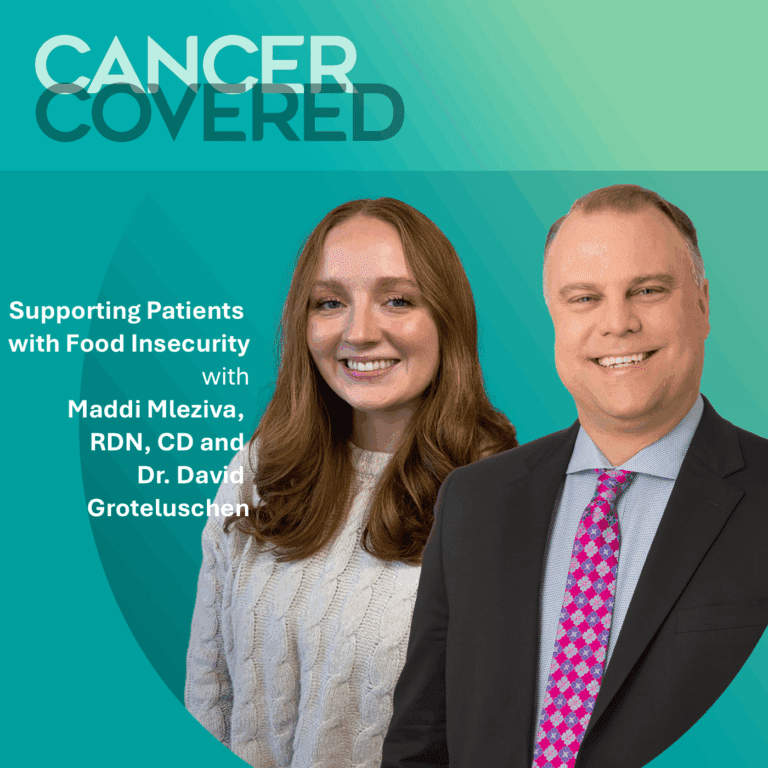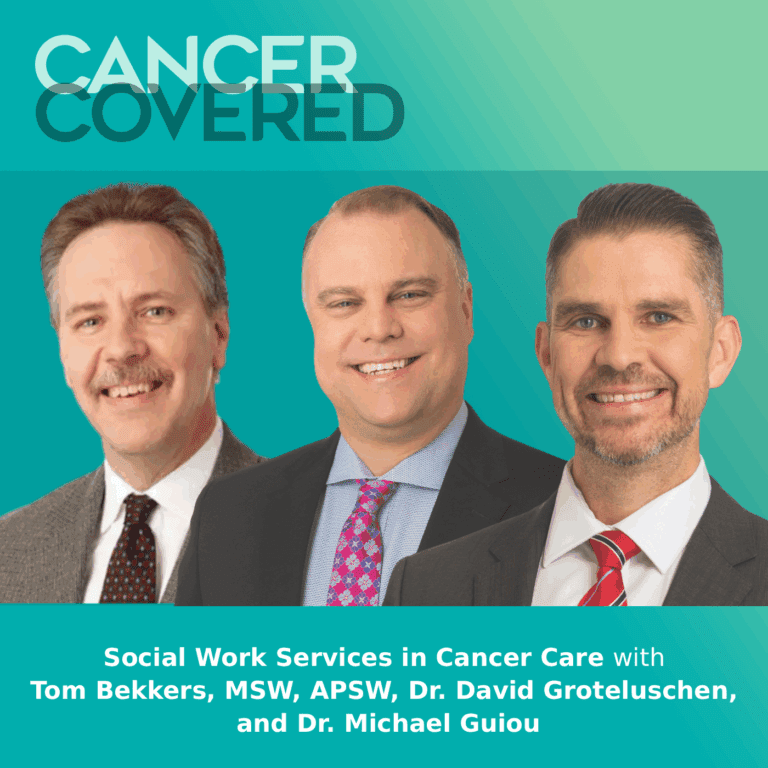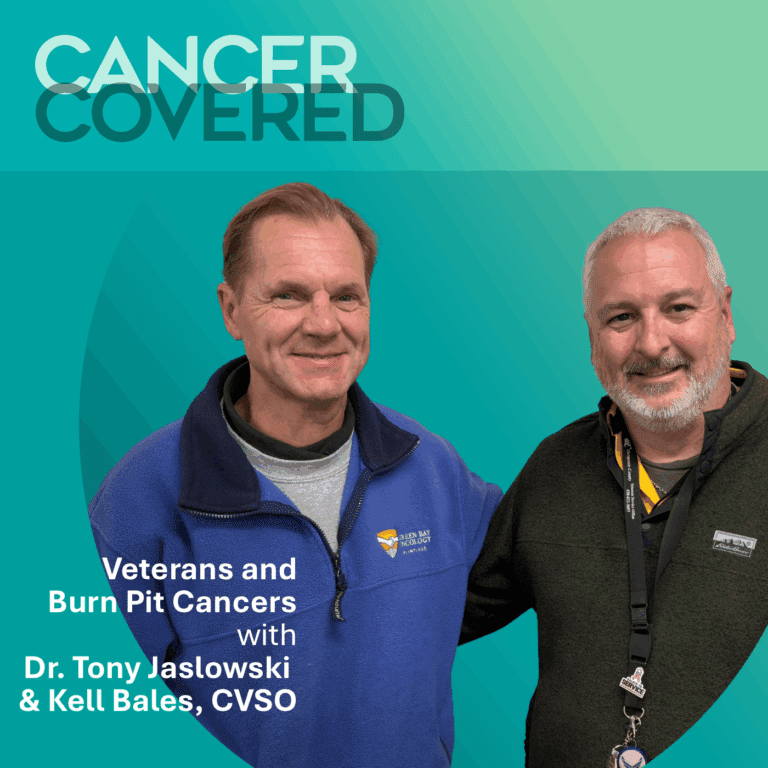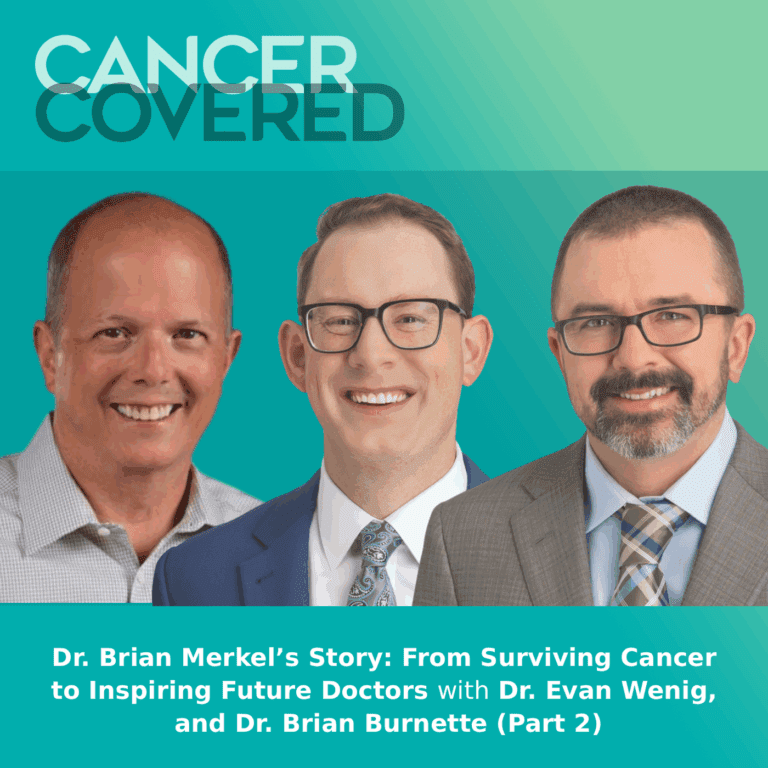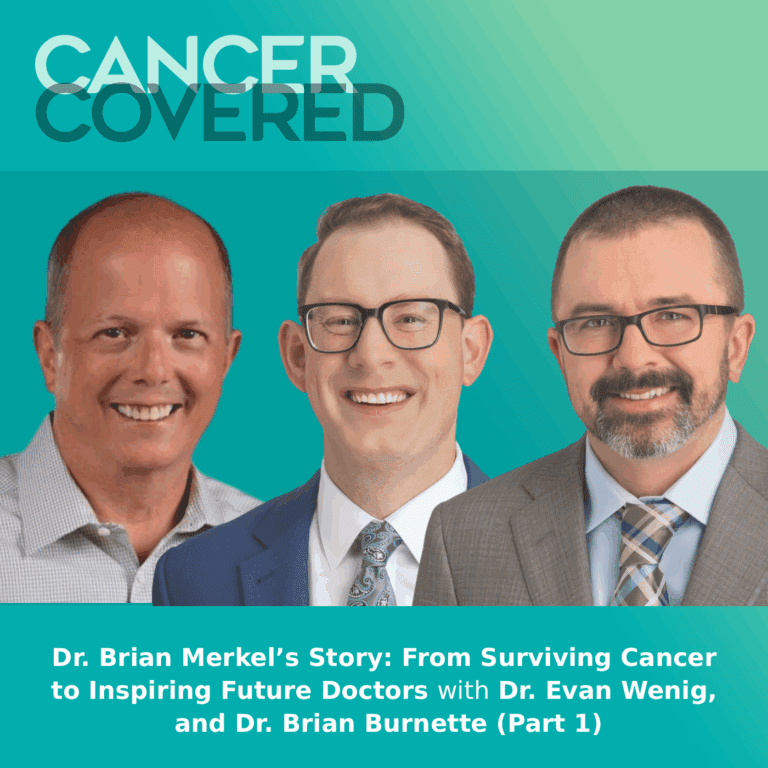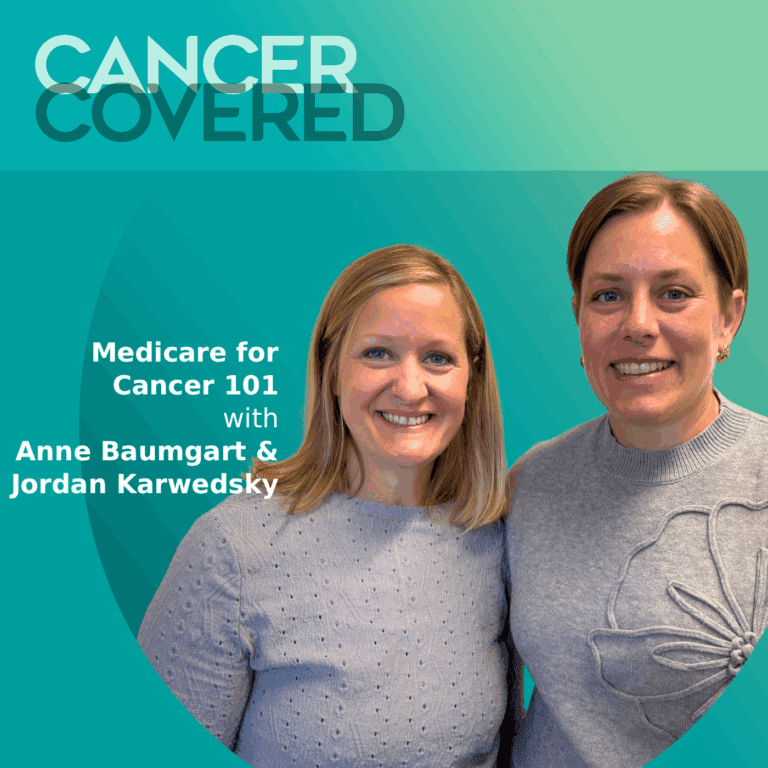Podcast: Play in new window | Download
Medical oncologist and hematologist Dr. Matthew Ryan and pediatric hematology/oncology social worker Emma Lehman, MSW, CAPSW, discuss the unique challenges that young adults face when transitioning from pediatric to adult cancer care. They share how the shift from a family-centered pediatric environment to a more independent adult setting can be emotionally and logistically daunting, highlighting the significant differences in care teams and support systems.
“Transitioning from pediatric to adult oncology care is tough because it’s more than just a medical shift; it’s an emotional and logistical one. Pediatric care offers significant wraparound support, while adult care expects more independence, which can be overwhelming for young adults.” – Emma Lehman
In this episode of Cancer Covered, you’ll learn:
- The biggest difference between pediatric and adult cancer care teams often lies in the presence of child life specialists in pediatric settings, who offer play, distraction, and creative ways for patients to cope with and process their experiences.
- Young adults often miss the strong relationships they built with their pediatric care teams due to the more personalized and family-involved approach common in pediatric clinics.
- Common barriers to a smooth transition include differences in health systems and medical records, as well as the challenge of establishing new relationships with the adult care team.
- Best practices for a successful transition involve initiating discussions early, teaching self-advocacy skills, and promoting effective communication between pediatric and adult care teams through “warm handoffs.”
- Empowering young adults in their new care environment involves encouragement, teaching them to lead appointments, and providing checklists to help them ask questions and understand answers.
We’ve Got Cancer…Covered.
Thanks for tuning into this week’s Cancer Covered with Green Bay Oncology episode. If you enjoyed this episode, please subscribe and leave a review wherever you get your podcasts.
Apple Podcasts | GooglePlay |Deezer | Spotify | iHeart
Be sure to share your favorite episodes on social media to help us reach more oncology professionals, cancer patients, and their families.
Join us on Facebook, Twitter, Instagram, and LinkedIn. For more exclusive content and information, visit our website.
Join Our Free Monthly Support Group
No one should carry the burden of cancer alone. A cancer diagnosis can make you and your loved ones feel isolated and alone – just when you need support the most.
Our social workers at Green Bay Oncology know that meaningful connection brings strength and healing. Sharing the experience in a safe space with others on a similar path is often powerful and therapeutic.
That’s why we offer a free monthly virtual and in-person cancer support group facilitated for you and your loved ones.
Wherever you are on your cancer journey – you are always welcome.
To join us, visit: https://gboncology.com/events/

